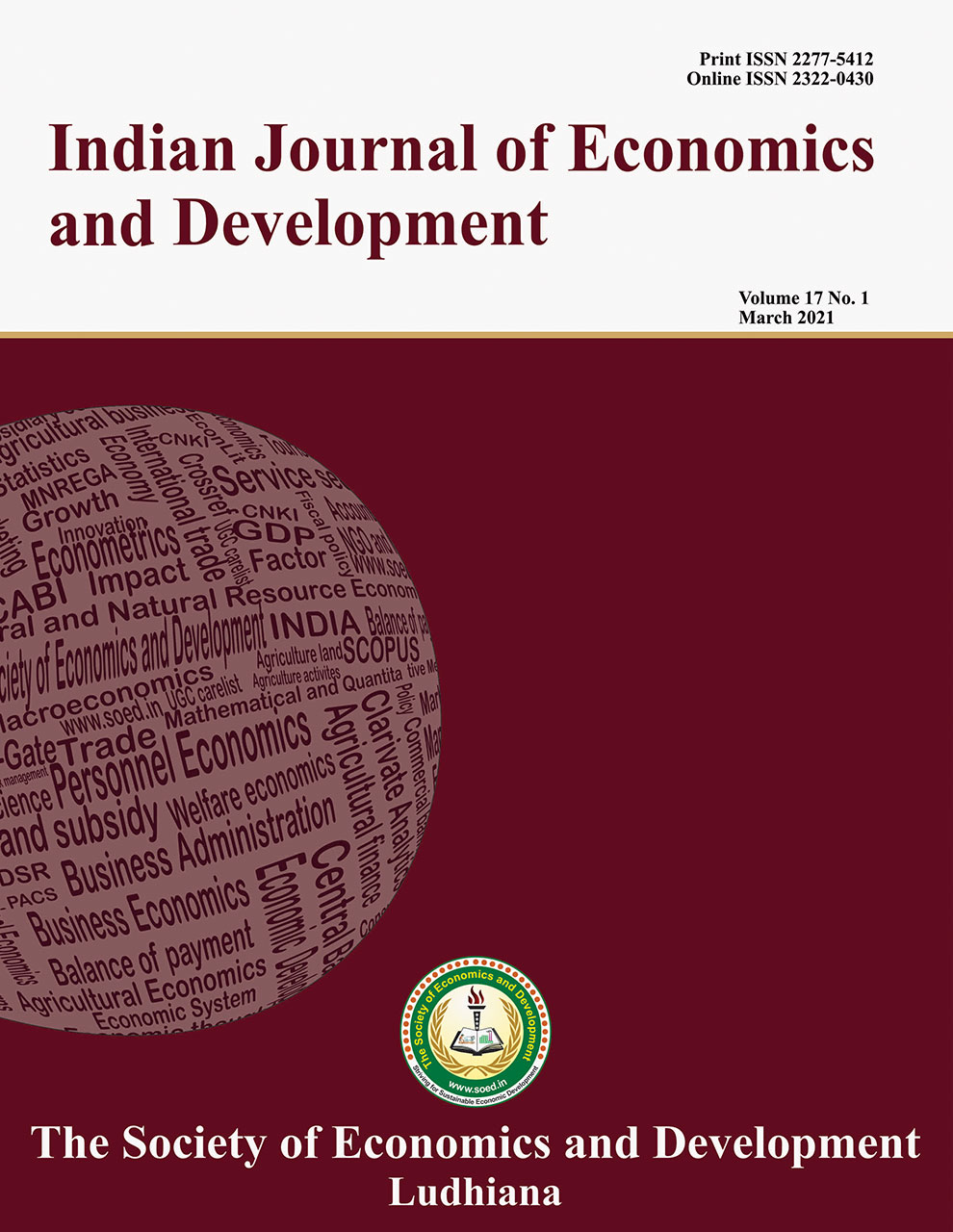Organic Agribusiness in India: Status, Potential, and Constraints

Price: ₹ 1000
Author: Pillai Yamuna Ravindran1 and S.S. Kalamkar
Author Address: 1Ph.D. Scholar (Economics), Sardar Patel University, Vallabh Vidyanagar-388120 (Gujarat) and Director and Professor, Agro-Economic Research Centre, Sardar Patel University, Vallabh Vidyanagar-388120 (Gujarat)
Keywords: Agribusiness, agricultural policy, food policy, organic crop.
JEL Codes: O13, Q13, Q16, Q10.
Abstract
This paper reviews the status and potential of organic agribusiness in India. Organic farm production and trade has emerged as an important sector in India as in other parts of the developing world. The growing health concerns and increasing non-tariff barriers like Sanitary and Phyto-sanitary (SPS) measures in the international market are some of the factors behind the move from chemical-based to organic production and consumption systems. It was observed from the data that India had inherent strengths in the production and marketing of organic agricultural produce as it had the largest number of organic producers in the world and ninth in terms of area under organic cultivation. If the issues in production and marketing were taken care of, India had the potential to become a leading player in the organic sector. Encouraging organic agriculture would require appropriate government policies to address the problems of supply and demand uncertainty, appropriate processing technology, and cost of certification and inspection, and market development.
Description
Indian Journal of Economics and Development
Volume 16 No. SS, 2020, 160-167
DOI: https://doi.org/10.35716/ijed/NS20-104
Indexed in Clarivate Analytics (ESCI) of WoS
Pillai Yamuna Ravindran1 and S.S. Kalamkar
1Ph.D. Scholar (Economics), Sardar Patel University, Vallabh Vidyanagar-388120 (Gujarat) and Director and Professor, Agro-Economic Research Centre, Sardar Patel University, Vallabh Vidyanagar-388120 (Gujarat)
Corresponding authors’ email: panickeryamuna@gmail.com



